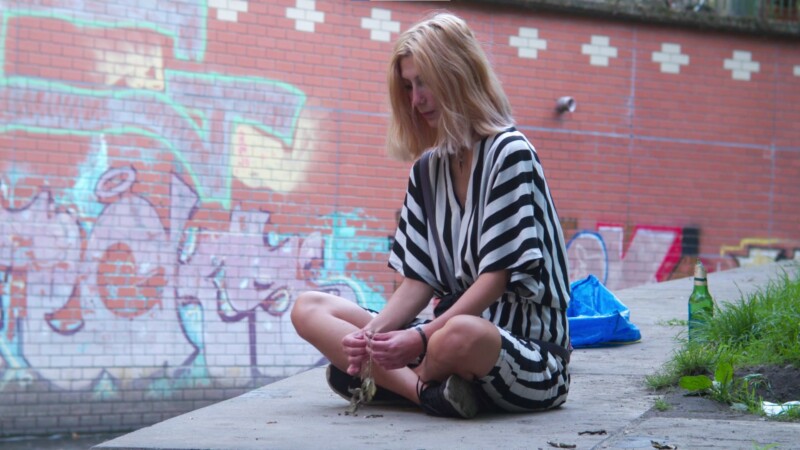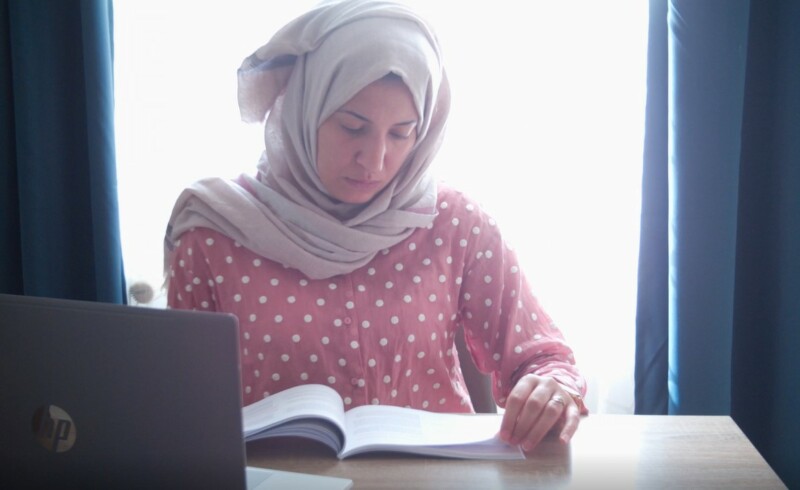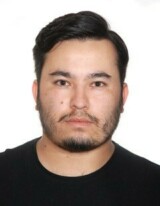Arrival means actually to start living in the past. Because you get the chance to reflect on what you left. Only in the safe place all the memories start coming back, you can connect the dots. Maybe you realize why you really left. The trauma comes out. Before creating a plan for the future, you need to reflect and find yourself. The new home gives you new chances, new opportunities to meet new people, new job, new everything. […]
Friends in the new country normalize your exile life. Having friends from all over the world is enriching, you get to know new dishes, new customs and stories. This helps you to get out of your bubble. You create your new friends and family in the new home, you keep in touch with the ones at home, but you need to move on with your life, to have the sense of the new place, also to feel home, and to be more stable.[…]
Exile teaches you things that you were not expecting or knowing, it put you in situations you never thought about before. After the experience of exile, the lonely nights, the hopeless cries and the heavy cold of Europe you become someone else, stronger sometimes, more fragile some other times, you learn to fight, and to take responsibility of yourself.[…]
The media should educate about the countries people flee from. They often only show one side (e.g. as a war zone) and reproduce stereotypes. Instead they should show the county’s culture, music, civilizations etc. It’s also somehow our task, to show where we came from, who we are and what culture we brought with us. [I experienced] a shaming of identity. People judged me for speaking my language at home with my children. But it’s their mother tongue![…]
Do we have the choice of coming back? Can we go back? Is it safe to go back? We left without a choice and we don’t have the choice to come back now. After years in exile, if things change, maybe the exiled person wants to go back but it will not be easy. Sometimes refugees find themselves in a camp together with those people they fled from in the first place. They experience the exact same threats that they fled from. Refugees are lumped together instead of looking at their individual reasons why they fled. […]
I faced racism in the integration course so in a way it was really an insight into the German society and what to expect. There were many stereotypes on the teacher’s side. [….]
After “What’s your name?” the second question is always: “Where are you from?”. It’s irritating: why are people so interested in where you’re coming from? The question can open a dialogue but very often it aims at putting someone in a box. People are more comfortable to categorize others, instead of seeing them as individual human beings. What I do could be much more relevant to who I am than where I’m from – because that’s not a choice. People expect you to have a plan right away. But you have just arrived in a new place, you’re safe and you have no plan (for the future). Sometimes the goal is just to be safe. Arrival can also mean having no plan.
Nazeeha Saeed worked as a journalist for international and local media in Bahrain for over 20 years. From 2011 she was exposed to state repression because of her journalistic work, especially on human rights issues. She was arrested and tortured for her critical reporting on the democracy protest movement, which erupted in Bahrain in the course of the “Arab Spring.” Nevertheless, she remained in the country until 2016 and was an activist for freedom of opinion and freedom of the press. In 2016 her journalistic license was revoked and a travel ban was imposed. She was sued for allegedly continuing to work as a journalist despite having her license revoked. As soon as the travel ban was lifted for a short time, Nazeeha Saeed left the country out of fear of further arrest. She first came to Paris to continue working with her previous clients. International organizations for free press work supported her in starting over in Europe and she succeeded in obtaining a right of residence even without asylum proceedings. She has been living in Berlin since fall 2019.
Nazeeha continues her journalistic work in Europe. She continues to write about the situation in Bahrain and the Gulf region, especially about human rights issues such as the situation of guest workers, women and LGBTIQ* persons. She also publishes articles on the situation in Europe, especially on exile life in Paris and Berlin. Nazeeha Saeed is committed to free journalism and gives empowerment and strategy workshops for journalists working in areas of political conflict. Because of her work she has become the face for violations of freedom of the press and freedom of opinion in Bahrain, which ranks 169th out of 180 in Reporters Without Borders’ press freedom index.
In an online workshop organised by the Exile Museum Foundation Berlin and the We Refugees Archive in January 2021, a group with refugee experiences talked about their experiences of exile in Berlin and jointly developed an ABC of arriving.







